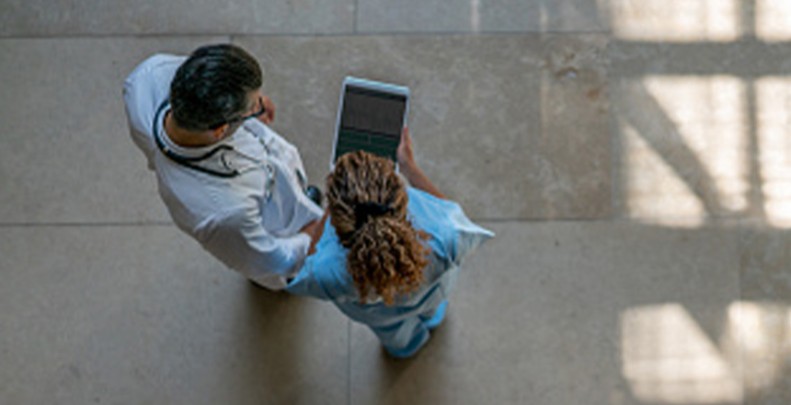CommonSpirit Health is Awarded Over $2.1 Million to Improve Treatment of Substance Use and Mental Health Disorders in Hospital Emergency Departments.
The Enterprise Population Health team is excited to announce that CommonSpirit Health is an award recipient of over $2.1 million from the California Department of Health Care Services to build capacity for improved treatment of substance use disorder and mental health disorders in hospital emergency departments. This funding will allow CommonSpirit Health (CSH) hospitals to expand the CA BRIDGE model from 11 to 25 CSH hospitals, helping vulnerable patients with opioid use disorder (OUD) connect to and gain access to life-saving treatments for their addiction. Dr. Julian Mitton, System Director for Population Health Policy at CommonSpirit Health, stresses that “opioid use disorder is a treatable chronic disease of the brain that requires long-term supportive treatment, including medications for addiction treatment (MAT) such as buprenorphine.” The CA BRIDGE model has been celebrated as a best-practice addiction care innovation. At its core, the model is about increasing access to evidence-based addiction care for patients with OUD through proactive outreach, patient navigation, and provider education. Thanks to this funding opportunity, this model will now be available in over 90% of CSH hospitals in California.
Many patients, in critical times of need and vulnerability, turn to our emergency rooms for help, and the CA BRIDGE model helps connect those individuals to resources and support to continue on a path to recovery. Behavioral health counselors navigate patients through an often complicated care network. The program staff also proactively addresses systemic barriers due to stigma and health inequities by advocating for patients in their holistic needs for recovery and promoting changes in clinical care through provider education. “[The BRIDGE program] is about more than just offering treatment,” says Dr. Alicia Kurtz, emergency medicine physician and Medical Director at Marian Regional Medical Center, “it’s also fostering a complete culture change within the house of medicine in how we think about and approach patients with substance use issues.”
Candace Fong, CSH System Vice President for Medication Safety, highlights that the award funding will help expand access to evidence-based addiction treatment by “reaching patients using innovative approaches in telemedicine and virtual peer support.” The Covid-19 pandemic has only complicated the way care is provided for individuals with substance use disorder, with patients feeling more isolated from their support structures, trying to manage increased stress, or struggling to access reliable care given ongoing needs for social distancing. But work is being done across the CSH enterprise to address these barriers and added challenges, by “expediting access to MAT programs [and other addiction services] in ways we previously had been unable to do for our patients,” Dr. Fong continues. The CA BRIDGE model is leading the charge on many of these innovations.
Beyond the emergency room, as a Catholic-based health system, CSH is committed to providing compassionate, evidence-based care to patients with addiction by meeting patients in their time of need. Through innovative population health efforts, CSH also aims to take proactive steps to reduce harm from drug use, routinely screen patients for substance use disorder, and change our clinical care model to reduce stigma and provide holistic care “This work aligns with CSH’s vision to create a healthier future for all. We are striving to eliminate disparities of care through strategic and intentional work to eradicate the systematic exclusion that many of our patients face on a day to day basis”, says Dr. Alisahah Cole, System Vice President for Population Health Innovation and Policy. “Our mission is to improve the health of the people we serve, especially those who are vulnerable and this program gives us the opportunity to help people in their greatest time of need.”
